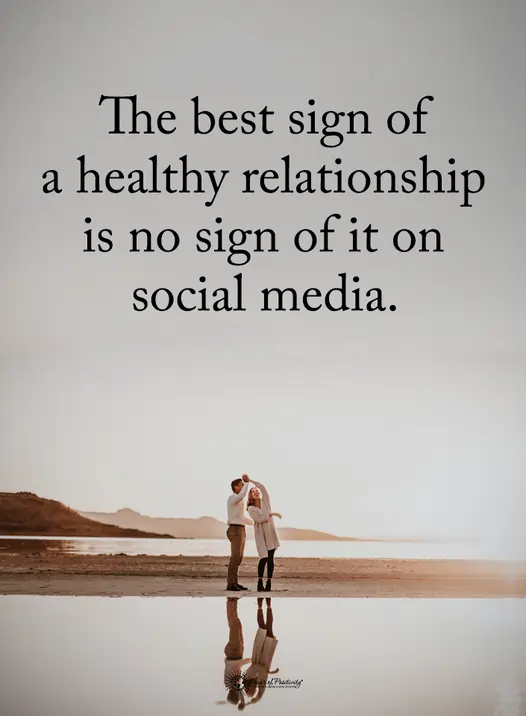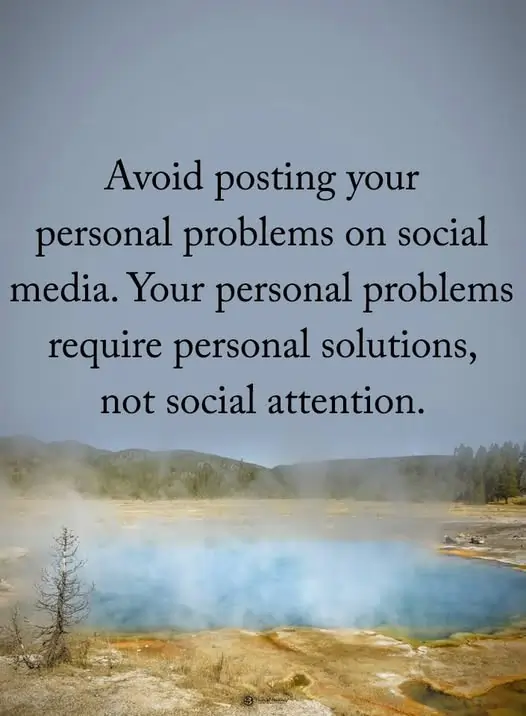You’re sitting throughout from somebody you care about. Perhaps it was throughout dinner; possibly it was a quiet night collectively. However as an alternative of significant eye contact, there’s the glow of a telephone display screen. You communicate, however their consideration is buried in notifications and scrolling.
This widespread but unsettling second has a reputation: phubbing, quick for telephone snubbing. It’s turn out to be a silent visitor on the desk in lots of trendy relationships.
We reside in a time of fixed connection. Regardless of the fixed digital connection, many {couples} expertise an elevated emotional distance. Phubbing might sound innocent, even regular, however it could actually chip away at belief, affection, and actual dialog.
On this article, we’ll unpack how phubbing impacts relationship well being and discover easy, trustworthy methods to reconnect with out the display screen in the way in which.
What Is Phubbing?
Phubbing is a mixture of the phrases “telephone” and “snubbing.” The time period was coined in 2012 by a bunch of Australian linguists, backed by the advert company McCann, to explain a surprisingly widespread behavior: ignoring somebody in favor of your telephone.
It occurs in small, on a regular basis moments. One widespread instance is scrolling by way of social media throughout dinner. Checking your texts throughout another person’s dialog is one other widespread incidence. When in mattress, it’s regular to succeed in in your display screen slightly than your accomplice’s hand.
At first look, it would simply look like rudeness. However phubbing runs deeper than that. It’s typically unconscious, pushed by behavior, nervousness, or digital overload. The important thing distinction lies in repetition.
A momentary distraction is forgivable. However when it turns into a sample, it begins to quietly reshape how two individuals relate, join, and really feel valued.
Phubbing isn’t nearly telephones—it’s about presence.
Why We Phub: The Psychology Behind the Scroll
Most individuals don’t imply to disregard their companions. However phubbing isn’t at all times a acutely aware selection. It’s normally a aspect impact of how our brains react to expertise.
Each ping, buzz, or notification faucets into our reward system, releasing small hits of dopamine, the identical chemical that fuels habits and habit.
Over time, checking our telephones turns into computerized. We attain for them in silence, in boredom, even mid-conversation, with out considering twice.
There’s additionally the worry of lacking out. We fear we’ll be neglected, unseen, or unreachable if we don’t keep plugged in. Mockingly, that fixed want to remain “related” on-line can disconnect us from the individuals sitting proper subsequent to us.
Listed here are a couple of widespread causes we unconsciously attain for our telephones in the midst of connection:
📲
Set tech-free zones
Checking turns into a behavior, not a selection. Create screen-free areas just like the dinner desk or bed room to reconnect with out distractions.
😐
Use light language
Boredom or silence feels uncomfortable. Discuss telephone use with “I really feel…” statements as an alternative of blame to maintain the dialog open.
👀
Construct screen-free rituals
Notifications set off immediate curiosity. Substitute recurring scrolling with shared routines like morning espresso or night walks—no telephones allowed.
🧠
Create emotional house
We’re avoiding a subject or emotional second. Telephone use can masks discomfort. Follow presence, even when the second feels awkward.
😰
Pause and replicate
We worry we’ll miss one thing necessary. Earlier than reaching in your telephone, ask, Is this case pressing—or simply computerized?
In some circumstances, it goes deeper. Individuals with low vanity or anxious attachment might cling to their telephones as a protect from vulnerability or discomfort within the relationship.
Phubbing isn’t only a behavior. It’s bizarre habits.
How Phubbing Impacts Relationships
At first, phubbing may look like a innocent behavior. A fast look at a message could possibly be thought of innocent. One may look at a message throughout a lull. Nonetheless, over time, these actions accumulate and have a unfavourable impression.
Companions on the receiving finish typically really feel dismissed or unimportant. When somebody chooses a display screen over face-to-face connection, it sends a quiet message: You’re not as fascinating. You’re not sufficient proper now.
That sort of delicate rejection, repeated typically, chips away at emotional closeness. It creates distance. Intimacy fades. Resentment can begin to develop, even when nobody speaks it aloud.
Analysis exhibits that frequent phubbing results in decrease relationship satisfaction, extra battle, and emotions of loneliness, even when each companions are nonetheless bodily collectively.
What’s worse, it could actually set off a cycle the place one accomplice begins phubbing again, making a loop of quiet detachment.
It’s not nearly telephones. It’s about consideration. And a spotlight, in relationships, is love in motion.
Phubbing and Psychological Well being
Phubbing could seem innocent, however emotionally, it runs deeper than most individuals understand. It doesn’t simply have an effect on connection; it quietly impacts psychological well being on either side. For the individual being phubbed, it could actually really feel like invisible rejection.
Over time, this delicate type of emotional neglect can result in nervousness, lowered vanity, and emotions of isolation. Being bodily shut however emotionally ignored creates a way of loneliness that the mind typically interprets as abandonment.
I Apparently, phubbing additionally impacts the one who engages in it. Many phubbers report emotions of guilt, disconnection, and emotional fatigue. Typically, their telephone use is a coping technique for unstated stress, boredom, or inside pressure.
Right here’s a breakdown of the way it impacts either side:
Feels emotionally rejected or invisible
Typically unaware of how their telephone use impacts others
Might expertise nervousness, unhappiness, or resentment
Might use telephone as an emotional escape or coping instrument
Belief and self-worth might start to erode
Would possibly really feel guilt, frustration, or inside pressure
Feels disconnected regardless of bodily presence
Finds it onerous to remain current or break the behavior
The emotional value of phubbing typically goes unnoticed—till the gap turns into too extensive to disregard.
Cultural & Particular person Variations
Not everybody experiences phubbing the identical means. Tradition, character, and relationship model all form how we reply to digital distractions.
Some cultures, significantly those who deeply worth face-to-face connection, understand phubbing as extra disrespectful. In different cultures that normalize fixed digital engagement, it might go unnoticed.
Research have proven that Western {couples} are inclined to report extra emotional pressure from phubbing than {couples} in some Japanese cultures, though phubbing is turning into a rising difficulty worldwide.
Particular person traits matter too. Individuals with anxious attachment types might really feel particularly harm by phubbing, seeing it as an indication of rejection. Others may shrug it off and even do it themselves with out realizing the impression.
Age and gender can play a job as effectively. Youthful generations, extra immersed in digital life, may tolerate extra display screen time. However that doesn’t imply it hurts any much less.
Understanding these variations helps us strategy the problem with extra empathy, not blame.
The Silent Killer of Communication
Phubbing doesn’t at all times begin with arguments or eye-rolls. Typically, it slips in quietly, by way of pauses that really feel colder or conversations that path off mid-sentence. Over time, it could actually quietly erode probably the most very important elements of any relationship: communication.
The movement of a dialog is disrupted when somebody appears at their telephone. It interrupts not simply phrases, however connection. The individual on the opposite finish might begin to really feel unheard, unimportant, and even invisible. It’s not only a missed sentence; it’s a missed second.
In accordance with Expectancy Violations Idea, we react strongly when somebody breaks unstated social guidelines. A kind of guidelines?
We try to be totally current throughout our time collectively. So when a accomplice’s gaze drops to their display screen, it could actually really feel like a private breach—even when it wasn’t meant that means.
Over time, these small breaks add up. Belief softens. Vulnerability fades. And what was once an open, trustworthy connection become quick, distracted exchanges.
Indicators You’re in a Phubbing-Inclined Relationship
Whereas not all display screen time raises considerations, it’s essential to take discover when telephones start to supplant bodily presence.
Phubbing typically creeps in quietly. You may not discover it at first, however the emotional distance grows over time.
Listed here are a couple of indicators you may be caught within the sample
- Scrolling or checking notifications typically interrupts conversations.
- One or each of you retain your telephone out throughout meals, dates, or quiet moments.
- You are feeling much less heard, much less seen, or much less necessary when your accomplice’s telephone is out.
- There’s pressure, even when unstated, about display screen time or feeling ignored.
- You catch your self reaching in your telephone when issues get emotionally uncomfortable.
- Discussions often start with, “Might you please set your telephone apart?”
If these sound acquainted, you’re not alone. Phubbing doesn’t at all times imply the connection is damaged, however it could possibly be a sign that one thing wants consideration.
Breaking the Cycle: Learn how to Cease Phubbing
Phubbing doesn’t at all times come from a unfavourable place. More often than not, it’s simply behavior, quiet, unintentional, and straightforward to miss. However once we let gadgets take up house meant for connection, even the strongest relationships can begin to really feel distant.
Happily, there’s excellent news! You don’t want huge, dramatic adjustments to repair it. Simply begin with small shifts. Set tech-free zones round shared moments. Use “I really feel” as an alternative of “you at all times” when bringing it up. Create little rituals with out screens, and be taught to inform the distinction between what’s pressing and what’s simply noise.
Reconnection is feasible, and it begins with consciousness. Selecting presence over behavior doesn’t imply being excellent. It merely means noticing if you’ve drifted and taking a step again towards one another.
The telephone will at all times be there. Nonetheless, the one who is at present in entrance of you is the one who issues most. That’s who issues most.






